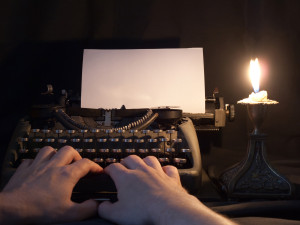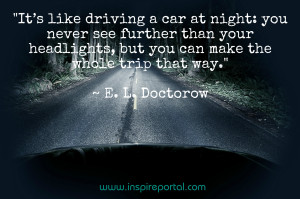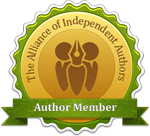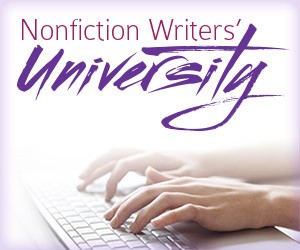
Writerly touchstones to find your flow again, to write with momentum & ease—& keep writing, no matter how long you’ve been away.
No matter how much you love a writing project — whether a novel, anthology of short fiction or poetry, memoir, screenplay, non-fiction book, series or course — sometimes after the initial buzz of inspiration and flurry of work, things shift. Maybe you hesitate because of doubt or that nagging feeling that what you’re doing is no good and that unease filters into your work.
Perhaps it stems from a far greater fear, that of sharing your offerings, after all, we bare our souls through our creative work. It can be hard to let it sail out into the world, make us feel vulnerable, exposed. Other times our words slow and stop because of circumstances beyond our control, when life takes takes centre stage. You may even lose a little of the love for your project as so much time has passed, eclipsing your initial inspirations.
Though to return to that place, to reignite your passion, you need momentum, and to create momentum you need tools that enable you to find your flow again, to write with joy again, to write with ease—and keep writing. For once you find your flow, your passion creates its own momentum, leaving the metaphorical muse grinning so grandly, you’ll wonder what she’s been up to in the interim since.
Let Yourself Write Badly
“I write one page of masterpiece to ninety-one pages of shit,” Ernest Hemingway once said to F. Scott Fitzgerald, echoing his most famous writing advice: “the first draft of anything is shit.” To find flow in your writing and keep momentum, write without concerning yourself with whether or not it’s good writing. Write without censoring yourself or worrying about what others might think.
“Only by giving yourself permission to write poorly will you write anything at all,” says Elizabeth Sims, novelist, Writer’s Digest contributing editor, and author of ‘You’ve Got a Book in You: A Stress-Free Guide to Writing the Book of Your Dreams’. “Once you have something down on the page, you’ll find it easier to keep going, to find the groove, the flow. When you give yourself permission to write poorly, you are implicitly saying:
““I’ve got the skills to make this better later if I decide it’s no good.” You’re reinforcing your own inner strength.” Even if it first seems far from how we envisaged, unless we relinquish the need to judge it or delete, and trust ourselves to the writing, let it carry us, flow through us in this raw, unfiltered state, we’re not allowing our true voice to speak.

These first thoughts are precious and can form the bones of a piece but you have to let go of the internal censor, the critic too, and allow yourself to write badly to create this momentum and flow. “Too many people postpone their writing dreams because of self-doubt,” says author and writing coach, Rochelle Melander.
“The more you practice, the easier the writing will be for you. But remember: Every book gets revised and edited. Whatever you write can be perfected. For now, you need to get that book out of your head and onto the paper.”
If You’re Paralysed By Over-Analysis

If you find yourself repeatedly editing the first sentence in a story or introduction to a piece before you’re able to continue, it’s easy to become paralyzed by this overanalysis, which slows your process as much as hampers with your flow, and can further freeze you in a state of creative anxiety.
“You go over it again, and again. You strike a line out there, and add another one here. You fix a comma that doesn’t need to be fixed. You have this sinking feeling in your stomach,” says writer, writing coach, and author of The INFJ Writer, Lauren Sapala. “Creatively, you know you’re just pushing your food around on the plate, but you can’t seem to stop.
“Welcome to analysis paralysis, otherwise known as overthinking. Once a writer falls into the trap of overthinking, anxiety rears its ugly head and the worries start to pile up.” As author Jodi Picoult so aptly wrote, “Anxiety’s like a rocking chair. It gives you something to do, but doesn’t get you very far.” Because it is a self-perpetuating loop you find yourself caught in, though equally one you can liberate yourself from.
-
To quell anxiety, calm your body & help your mind relax, activate the calming parasympathetic wing of your nervous system by taking a few deep breaths with exhalations around twice the length of each inhalation.
-
Then, try these acupressure points that are potent tools to ease anxiety.
-
If you find yourself unable to liberate yourself from this uncomfortable state because of overthinking, the psychology tools outlined in this post are also effective to calm unhelpful thoughts.
-
Finally, write yourself out of it. Refining our work is, of course, important but to find your momentum, save editing for later drafts. For now, you don’t need to have everything in immaculate perfection on the page, only on the page.
It’s only when we allow ourselves to let go of any anxieties or preconceptions about how our writing should be, and simply write, that the creative faucet is loosened and with it, our paralysis is loosened too. In fact, unless you grant yourself a little liberty when writing, give yourself the freedom to write wild and messy first drafts, it will always be tricky to move forward, and if your progress slows or stops, your momentum can become as stilted or as hesitant as the prose.
“Like the old joke says, if you have insomnia, sleep it off. And if you suffer from writer’s block, write yourself out of it,” says James Scott Bell, novelist, writing coach, and bestselling author of Write Great Fiction – Plot & Structure. “With the paralysis-by-over-analysis type of block, your head is tangling itself up in your fingers, like kelp on a boat propeller. The motor is chugging but you’re not moving. You’ve got to cut away all that crud.”
Find Your Anchors of Existing Momentum

“The world is brimming with advice about how to write more and write better. Chances are good that you’ve explored some—or maybe even many—of these recommendations. Before you can make good use of someone else’s advice, it’s important to develop a realistic picture of who you are, what your tendencies are, and what you’re realistically willing and able to change,” says Sage Cohen in her book, Fierce on the Page (Writer’s Digest Books).
“So many of us are so entrenched in our unconscious ways of doing and being that we have no idea what’s broken, and therefore we are not in a position to intelligently decide what needs fixing. Nor do we recognize and appreciate our gifts, our strengths, and our anchors of existing momentum.” Sage suggests asking valuable questions about your process, including:
-
Where do you stall and when do you take flight?
-
What are you doing when you have your best ideas?
-
How do you waste time?
-
What writing do you admire?
-
What do you want so badly that you haven’t even articulated it yet?
Give Yourself Permission to Be You

“Simply paying attention to the way you write—and don’t write—can be the start of a sea change,” says Sage Cohen, who goes on to say that alongside this, the key to unlocking your momentum is giving yourself permission to be you, as if you’re holding back, if you’re trying to project a certain voice or particular style that’s not your own, finding your flow, and your own voice too, will always be a little thwarted.
One of the finest writing tips I’ve ever been given was to write the things you wouldn’t dare let anyone see, not those closest to you, not your parents or that nice old dear who lives down the street. It has a way of removing the filter, lets you slip into a more authentic relationship with your work, and that seeps into the language.
“Just because you read once that “serious” writers get MFAs doesn’t necessarily mean you are called to do the same. Maybe most poets write only poetry, but you span multiple genres. Perhaps you think you should write faster, be less stiff in front of an audience, sharpen your pencil more often,” says Sage Cohen.
“When you know yourself well, you can let go of advice about what you should be doing and spend time doing things that actually help you succeed. Once you’ve emptied your mind of protests, pick up that pen or keyboard and get going. If you love to write, trust yourself to the writing.”
Outline & Use Steinbeck’s Tip to Find Flow & Rhythm

“These are some of the things I have had to do to keep from going nuts,” wrote John Steinbeck in a letter to a friend (read his 6 Tips for the Aspiring Writer here). “Write freely and as rapidly as possible and throw the whole thing on paper. Never correct or rewrite until the whole thing is down.
“Rewrite in process is usually found to be an excuse for not going on. It also interferes with flow and rhythm which can only come from a kind of unconscious association with the material.” There’s power in writing freely, unhindered by the many considerations that need be addressed after this initial draft.
While writing consistently, even if it’s the humblest amount, creates the unconscious connection Steinbeck spoke of, Hemingway too. “Let that first draft WHOOSH OUT of you as much as possible,” agrees Robert Vaughan, author, fiction and poetry editor and judge for numerous literary journals. Some writers love this stage, this liberty, others find it too uncertain.
If you fall into the latter but find a detailed outline takes away some of the magic, try a loose outline, which still guides you — making you less likely to write yourself into a corner — and keeps you focused and moving forward. One tool I’ve found invaluable is writing out the milestones, the most significant scenes in fiction and individual points in non-fiction, then write as freely and as consistently as you can.
“Stories have natural turning points, where the plot increases the pressure on the characters. When you build a story from beats (episodes where something changes) you’ll find they often fall into a pattern. The audience seems to have an internal clock, and feels the story needs these emotional shifts,” says Roz Morris, novelist, blogger and author of the inspired Nail Your Novel series, including Writing Plots With Drama, Depth & Heart.
“They also find it most satisfying when played out in these phases.” If you prefer more detail but find yourself overwhelmed and unsure how to use outlines most effectively, I also highly recommend K.M. Weiland‘s book Outlining Your Novel. “Writers often look upon outlines with fear and trembling. But when properly understood and correctly wielded, the outline is one of the most powerful weapons in a writer’s arsenal,” says K.M. Weiland.
[tweet”“The more you practice, the easier the #writing will be for you.’ ~ Rochelle Melander @WriteNowCoach #amwriting”]
Hemmingway’s Technique to Keep Moving Forward

“You write until you come to a place where you still have your juice and know what will happen next and you stop and try to live through until the next day when you hit it again,” Ernest Hemmingway told The Paris Review. It may seem counterintuitive but these are the moments which create that addictive love for and connection to your writing, especially fiction.
In the interim your mind incubates the unfinished scene or chapter, often with new creative inspirations, while also setting you up for more ease in your writing as you are not perturbed nor hampered by a blank page but can continue, pick up where you left off, without any creative anxiety or stress.
“When you stop you are as empty, and at the same time never empty but filling, as when you have made love to someone you love. Nothing can hurt you, nothing can happen, nothing means anything until the next day when you do it again. It is the wait until the next day that is hard to get through,” said Ernest Hemmingway, and many famous authors agree.
“To keep your momentum going, Roald Dahl said, echoing Hemmingway, “When you are going good, stop writing.” When things are going well, stop,” says Chad. r. Allen, writer, editor, speaker, creativity coach and editorial director for Baker Books. “It takes great discipline to stop when you know where you want to go next, but that’s the advice of these two great literary masters. Stop, they say, so you’ll be excited to get back to work the next day because you’ll know what you want to say.”
[tweet ““When things are going well, stop.” ~ Chad R. Allen @ChadRAllen #writingtip”
Watch Out for Rabbit Holes

Perhaps you stop writing midway through a piece as you need to find out a specific detail, such as a product from the era, setting or a fashion detail in historical fiction for instance. If you’re anything like me, you’ll find research so enjoyable, so deeply fascinating that you might as well call yourself Alice and fall down a rabbit hole.
Instead of stopping to research and interrupting your flow, use square brackets, notes in the margins if writing on paper, and capture other ideas in your notebook and keep writing. “I use the margins for research notes such as, “what’s position of Sirius over L.A./August? Write a box around a phrase; stack two competing adjectives atop each other; make notes in the margin,” says Elizabeth Sims.
“If you want to add a word or a block of text, don’t stop at using carats to show an insert. Circle stuff, draw arrows, loop one piece of text into the middle of another. And keep going. If it’s instantly obvious that one version of a word, sentence or graph is better, strike out the bad one and go on without looking back. If you compose on a keyboard, make the “return” button your best friend: Set off a new idea by hitting two carriage returns.”
Use Over-Writing to Keep Your Momentum

Although separating the two processes of writing and editing does help you maintain momentum and find your flow, sometimes there are two distinct ways of conveying something but to keep moving forward, simply make a note, and write down both. “The common wisdom in writing workshops is that you shouldn’t stop to revise,” says Elizabeth Sims.
“But let’s be honest: That’s unrealistic because sometimes you really do see another possibility right away, and you should be free to pursue it. I recommend over-writing as you go. If, in a single moment, you think of two different ways of saying something, just write both, one after the other. Later you’ll be able to decide which is better.”
If Your Writing Slows & the Inner Critic Steps In

If you’re having trouble finding flow in your writing because of fear — whether of the blank page or fear of failure — it may force you to stop. Creative doubt may lull you into inaction, convince you that you’re not good enough, talented enough, intelligent enough nor important enough to be writing but beneath all this fear and insecurity is someone who longs to write.
Don’t let emotions such as these threaten your dreams. They feed off each other and are only interested in self-preservation. “In order to write anything that even has a shot at satisfying our artistic desire, we have to move through fear and face the things that consume us,” says Lauren Sapala.
Don’t allow fear, doubt or the opinions of others, even the perceived opinions of others prevent you from writing, from your passion and from making that passion an important part of your life. “If you feel a strong and steady message coming from your heart about what you want to write—even if your rational mind is totally freaking out—you are on the right path,” says Lauren Sapala.
“It doesn’t matter what anyone else says and it doesn’t matter what anyone else thinks. It’s up to you to make up your own rules.” If you long to write, write. No one need see it until you’re ready for them to. Write for the love of it, write for the joy of it. Write because unless you articulate your thoughts and feelings, and translate it all through the working magic of language, you feel displaced, disconnected, off-centre.
Embrace the Uncertainty to Find Your Flow

Uncertainty is a particularly weighty facet of the human condition. We like to know where we’re heading, have a guide, a plan, a map. Even the most adventurous, the most wilderness-hiking, mountain-clambering vagabond likes a certain point to navigate from. Fuse this ongoing uncertainty with creativity, with writing and making your art, and all bets are off.
“That ever-mysterious process of not knowing and then somehow listening inside is one of discovery and uncovering,” says Noelle Sterne, author, editor, dissertation and writing coach, and spiritual counselor. In writing her first novel, Noelle used a process of asking and answering questions, as detailed in this piece: 5 Helpful Lessons for Writing a Novel | WritersDigest.com.
“I’ve always loved, and fallen back on, a well-known quote by E.L. Doctorow: writing is “like driving a car at night; you never see further than your headlights, but you can make the whole trip that way” (quoted in George Plimpton, “E. L. Doctorow: The art of fiction,” no. 94. Paris Review, 101, 1986). And I believe in that unknowing. It can yield the richest fields.
“Nevertheless, the question-answering helped me crystallize my purpose, mission, focus, themes in the novel. And priming that pump gave me direction in the novel and drive to continue steering the car, even if I couldn’t—and can’t—see very far and may rearrange the very map.”
'Writing is like driving a car at night; you never see further than your headlights, but you can make the whole trip that way”Click To TweetFind Your Own Unique Writing Process

Sometimes writing can be a joyful and serendipitous experience, other times filled with frustration. Too much of the latter and your inner critic may chant the equally grand fib that you should quit. Give up, after all, if it’s not moving forward even when you’re giving so much, why keep going? But before you turn your garret into a games room or flog all your writerly books, consider this:
Each of us has a process as unique as we are and finding that process, embracing it too, tending to it as one might tend a garden is literally and metaphorically what allows those glorious seeds to push through the soil and grow. “Each one of us has to figure out our voice, our expression, our style, our path, on our own,” says Lauren Sapala. “What works for one person may very well be a disaster for another. And we never know if something is going to work until we try it.”
Just keep writing, keep watering, keep feeding your tender shoots, consistently, without drama or stress—even if you miss a day or even if you’ve been away all week. Even, as in my case, you have a condition so capricious it keeps half-inching the use of your hands, though only mention it as I hope you know what a gift it is, what a blessing it is to be able to write.
“Each one of us has to figure out our voice, our expression, our style, our path, on our own.”Click To TweetWriting Changes Everything

Like the brightest star in the night sky, we can use our own inner compass to guide us, to locate and move towards our writing goals. The night’s only as dark as the moon allows but you can always shine more light. No matter what dreadful eventuality your internal critic or inner killjoy has conjured up, for they’re perhaps the greatest storytellers of all, the real fear isn’t of the greater, grander picture but instead, taking the first step. Yet it’s precisely that which is the antidote.
“In the middle of the world, make one positive step. In the center of chaos, make one definitive act. Just write,” says author Natalie Goldberg. No matter the length of the journey it only begins when you do. Much about creativity is beginning anew. Each project, each line or work of art is drawn from the act of beginning again.
“All of it begins at the beginning, with the first small and scary step. Wherever you are is always the right place. There is never a need to fix anything, to hitch up the bootstraps of the soul and start at some higher place. Start right where you are,” wrote artist and author, Julia Cameron.
It is only through the act itself that you can allow your writing to discover itself, to find that flow and become acquainted with the sensation of writing, with the feeling of writing, with the images that come to you, through you. Your passion can pull you forward, generating its own momentum, and even a single spark can ignite the grandest fire but you have to first trust it, to let it. To begin.
“In the center of chaos, make one definitive act. Just write.' ~ Natalie GoldbergClick To TweetTake a Moment, Take a Breath
If you find yourself slowing and stopping, take a moment, take a deep breath. Drop your shoulders and let go a little, of any building stress no matter its source, whether from doubt, perfectionism or anxiety, simply return yourself to the moment, to a state of presence. Writing may be far from easy but it can be joyful too. If things are becoming far too seniors, and that stress is hampering with your flow, step away from the desk.

Even five minutes can reinvigorate you as much as your prose. A huge part of my writing process when feature writing for magazines was taking, teeny yoga asana breaks. Maybe not when working in-house (cue: sideways glance) but they are invaluable as they give you a break, of course, a moment of calm and deliver fresh inspiration but also inject clarity, stretch your mind just as they limber your limbs.
In fact, there’s nothing finer for writer’s block, writer’s indecision, writer’s [insert problem here]. Try these yoga asanas which hold special properties for writers and artists.
Capture & Be Ready to Receive

If immersed in another task or project, inspiration for another so frequently descends. Sometimes these fragments are so delicate, so fleeting and so easy to forget. So capture every idea — even the briefest summary — so you never lose a trick, and return to these later. Thereby keeping the momentum for whatever you are working on without losing any of the magic for this project nor creative offerings in the future.
By creating the habit of capturing everything the instant it comes to you — even if you think it might amount to nothing at all — also creates a shift in thinking, ensuring that you’re always in a receptive state for creativity, for your writing and art, whether working on it at the time or not. “The best ideas happen at any time, so one must be ready to receive them,” says author Alexis Landau in her 7 Habits of Highly Effective Writers on Signature Reads.
“I’ve written down thoughts or an idea will come when I’m doing something entirely different from writing. A phrase, an image, or an idea for a character or scene will arise and the important thing is to write it down otherwise, I’ll forget it entirely later on. Then when I’m actually at my desk, will I develop the fragment, and see if it becomes something real, that I can use, or if it is just an ephemeral aspect of the creative process.”
“The secret of it all is to write in the gush, the throb, the flood, of the moment – to put things down without deliberation – without worrying about their style – without waiting for a fit time or place.” ~ Walt Whitman
Remember to Enjoy yourself, Remember to Play.

To get your pen moving, and the words appearing on the page, drop any concerns over the final product. It gives you the freedom to be playful, curious, and liberated in your writing, and when you’re enjoying yourself momentum is a natural consequence.
“If we didn’t have to worry about being published and being judged, how many of us would write a novel just for the joy of making one? What if we didn’t have to be “good” at writing? What if writing were approached like white-water rafting? Something to try just for the fact of having tried it, for the spills and chills of having gone through the rapids of the creative process,” says Julia Cameron.
“What if we got to do it for sheer fun?” Write even if it’s not part of a larger project. In fact, especially if it is not part of a larger project. Set your Timer for 10 minutes and do a free-write to loosen and liberate your prose. “What if we allowed ourselves to be amateurs (from the Latin verb amare, “to love”). If we could just get over the auditioning to be respected at this aspect, a great many people might love writing. Although our mythology seldom tells us this, it’s fun.”
Be Supportive of Your Own Process

Whether you’re just starting out or have been writing for a lifetime, your writing is always evolving, your process and craft, always growing. When you are supportive of that growth, during the frustrations, the rejections, the dips of creativity or absence of time, the longing to be better, and the need to produce more work — it helps ease you past the awkward phases where you do not know how to move forward or find yourself stuck, as you know it is all part of the process and you know it will pass.
“I believe in myself and my abilities. Throughout the ups and downs of the writing journey, I’ve clung to the dream of being published,” says author Jody Hedlund. “Sure, occasionally I hit depressing dips that have made me feel like giving up. But I always crawl through them and make it to the other side. I brush off the gravel, ignore the bruises, and plod steadily onward toward my goals.”
Even the finest writers have times when their creativity ebbs or inspirations slows, every writer has days that are a little less creatively lovely but they keep going anyway. Though if it all overwhelms, step away from your desk. Read, research, try a different medium, location to write or time. If possible for you, take a long walk in nature or people watching through town.
So much of writing and the creative process is not writing. Be kind to yourself, supportive of your own process. We all have our own unique ways of working, and embracing that process, responding to that process, to discover it, enhance it, and continually refine it, with an awareness of our own internal energies and personality too, ensures it becomes a part of us, regardless of how different, how out of sequence or unconventional it may be.
If you enjoyed this offering, feel free to share the love ❥
Thank you! Sign-up here for updates about the Om & other offerings. ❥
Namaste ❥
Summary of points
-
Write wild and messy first drafts.
-
Don’t stop to research. Instead use square brackets, notes over-write if you find you have two ways of writing something, and keep moving forward.
-
Do stop when it’s going well.
-
Write as freely and as consistently as you can.
-
Remember to enjoy yourself, remember to play.
-
Find your own unique process, no matter how unconventional, & embrace that process. If something works for you, use it.
-
Capture inspirations & keep going, always be ready to receive.
-
Give yourself permission to be you.
-
One of my favorite antidotes to writer’s block is yoga, even just an asana or two (click here for some examples).
You may enjoy:
Essential Skills for Writers: Having the Courage to Make Up Your Own Rules – Lauren Sapala
Pace and story structure: a blueprint for keeping the reader gripped | Nail Your Novel
How Hemingway Kept His Momentum Going and You Can Too – Chad R. Allen
Avoiding Writing Paralysis Due To Over-Analysis
Author, Jody Hedlund: 5 Traits That Foster Publishing Success





Thanks for the lovely mention, Jo! Great round-up of advice and advisers!
Always welcome, Roz, and thank you. That made me giggle… I’d barely reclaimed post-posting ‘spoons‘ on seeing your comment. You’re swift as a hummingbird, as always! Wishing you a wonderfully writerly week. ❥
I liked your article but I find the blue type difficult to read.